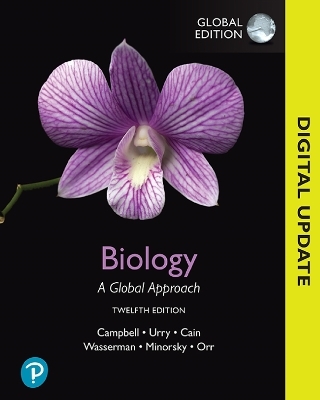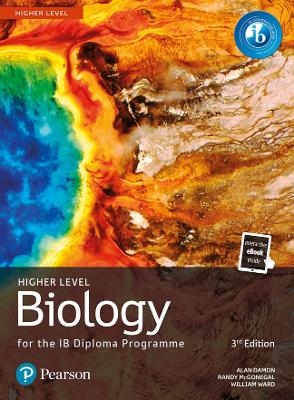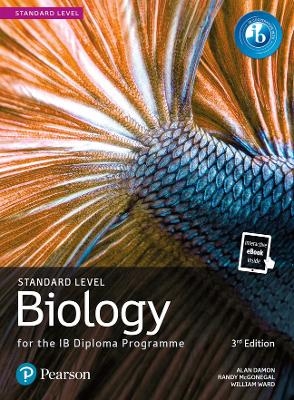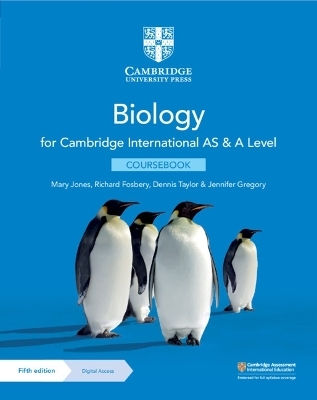
Biology: A Global Approach (Digital Update), Global Edition + Mastering Biology with Pearson eText (Package)
Pearson Education Limited
978-1-292-46381-0 (ISBN)
Neil A. Campbell (1946-2004) earned his M.A. from the University of California, Los Angeles, and his Ph.D. from the University of California, Riverside. His research focused on desert and coastal plants. Neil's 30 years of teaching included introductory biology courses at Cornell University, Pomona College, and San Bernardino Valley College, where he received the college's first Outstanding Professor Award in 1986. For many years he was also a visiting scholar at UC Riverside. Neil was the founding author of Biology: A Global Approach. Lisa A. Urry is Professor of Biology and Co-Chair of the Biology Department at Mills College at Northeastern University in Oakland, California. After earning a B.A. at Tufts University, she completed her Ph.D. at the Massachusetts Institute of Technology (MIT). Lisa has conducted research on gene expression during embryonic and larval development in sea urchins. Deeply committed to promoting opportunities in science for women and underrepresented minorities, she has taught courses ranging from introductory and developmental biology. Michael L. Cain is an ecologist and evolutionary biologist who is now writing full-time. Michael earned an A.B. from Bowdoin College, an M.Sc. from Brown University, and a Ph.D. from Cornell University. As a faculty member at New Mexico State University, he taught introductory biology, ecology, evolution, botany, and conservation biology. Michael is the author of dozens of scientific papers on topics that include foraging behavior in insects and plants, long-distance seed dispersal, and speciation in crickets. Steven A. Wasserman is Professor of Biology at the University of California, San Diego (UCSD). He earned an A.B. from Harvard University and a Ph.D. from MIT. Working on the fruit fly Drosophila, Steve has done research on developmental biology, reproduction, and immunity. Having taught genetics, development, and physiology to undergraduate, graduate, and medical students, he now focuses on introductory biology, for which he has been honored with UCSD's Distinguished Teaching Award. Peter V. Minorsky is Professor of Biology at Mercy College in New York, where he teaches introductory biology, ecology, and botany. He received his A.B. from Vassar College and his Ph.D. from Cornell University. Peter taught at Kenyon College, Union College, Western Connecticut State University, and Vassar College; he is also the science writer for the journal Plant Physiology. His research interests concern how plants sense environmental change. Peter received the 2008 Award for Teaching Excellence at Mercy College. Rebecca B. Orr is Professor of Biology at Collin College in Plano, Texas, where she teaches introductory biology. She earned her B.S. from Texas A&M University and her Ph.D. from University of Texas Southwestern Medical Centre at Dallas. Rebecca has a passion for investigating strategies that result in more effective learning and retention, and she is a certified Team-Based Learning Collaborative Trainer Consultant. She enjoys focusing on the creation of learning opportunities that both engage and challenge students. Kerry L. Hull is the Dean of Science and a Professor in the Department of Biology and Biochemistry at Bishop's University in Quebec, Canada. She holds a B.Sc. in Biology and a Ph.D. in Physiology (Endocrinology), both from the University of Alberta (Canada). She teaches Physiology and Anatomy courses to undergraduates, using guided inquiry and case studies as her primary teaching approaches. A comparative endocrinologist by training, her current research focuses on the development and implementation of active learning strategies in Anatomy and Physiology courses.
Biology and Its Themes
Unit 1 THE ROLE OF CHEMISTRY IN BIOLOGY
Atoms and Molecules
The Chemistry of Water
Carbon: The Basis of Molecular Diversity
Biological Macromolecules and Lipids
Energy and Life
Unit 2 Cell Biology
Cell Structure and Function
Cell Membranes
Cellular Signaling
Cell Respiration
Photosynthetic Processes
Mitosis
Unit 3 THE GENETIC BASIS OF LIFE
Sexual Life Cycles and Meiosis
Mendelian Genetics
Linkage and Chromosomes
Nucleic Acids and Inheritance
Expression of Genes
Control of Gene Expression
DNA Technology
The Evolution of Genomes
Unit 4 Evolution
How Evolution Works
Phylogenetic Reconstruction
Microevolution
Species and Speciation
Macroevolution
Unit 5 THE DIVERSITY OF LIFE
Introduction to Viruses
Prokaryotes
The Origin and Evolution of Eukaryotes
Nonvascular and Seedless Vascular Plants
Seed Plants
Introduction to Fungi
An Introduction to Animal Diversity
Invertebrates
Vertebrates
Unit 6 PLANTS: STRUCTURE AND FUNCTION
Plant Structure and Growth
Transport in Vascular Plants
Plant Nutrition
Reproduction of Flowering Plants
Plant Signals and Behavior
Unit 7 ANIMALS: STRUCTURE AND FUNCTION
The Animal Body
Chemical Signals in Animals
Animal Digestive Systems
Animal Transport Systems
Animal Excretory Systems
Animal Reproductive Systems
Development in Animals
Animal Defenses Against Infection
Electrical Signals in Animals
Neural Regulation in Animals
Sensation and Movement in Animals
Unit 8 THE ECOLOGY OF LIFE
An Overview of Ecology
Behavioral Ecology
Populations and Life History Traits
Biodiversity and Communities
Energy Flow and Chemical Cycling in Ecosystems
Conservation and Global Ecology
Download the detailed table of contents
| Erscheint lt. Verlag | 22.11.2024 |
|---|---|
| Verlagsort | Harlow |
| Sprache | englisch |
| Themenwelt | Naturwissenschaften ► Biologie |
| ISBN-10 | 1-292-46381-3 / 1292463813 |
| ISBN-13 | 978-1-292-46381-0 / 9781292463810 |
| Zustand | Neuware |
| Informationen gemäß Produktsicherheitsverordnung (GPSR) | |
| Haben Sie eine Frage zum Produkt? |
aus dem Bereich


